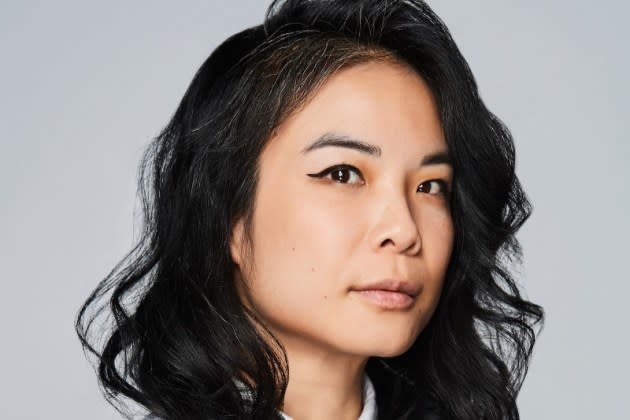Edible Insects and Other Climate-friendly Health Tips: The Guardian U.S. Launches Wellness Vertical

When The Guardian U.S. editors — the American outpost of the 200-year-old left-of-center British newspaper — set out to launch a new lifestyle and wellness vertical, they knew they had to come up with a different approach amid an onslaught of social-media fueled wellness content.
That’s where the fried insects come in.
More from WWD
Well Actually, a vertical on The Guardian U.S. site launching Wednesday, will infuse lifestyle and wellness coverage with the progressive values the newspaper has long espoused. And that means giving readers practical advice that is also good for the planet and humanity, including trending topics such as planet friendly edible insects.
“A lot of [wellness coverage] caters to elite consumers who are kind of obsessed with perfection and optimization,” said Estelle Tang, lifestyle and wellness editor at The Guardian U.S. “The world is very complex. There’s a lot of information out there. These things can be really overwhelming. We’re hoping to add wellness coverage with values, which are very aligned with environmental consciousness and political consciousness as well. Living well can be really hard. It’s not as easy as adding a couple of steps to daily routine. And we have to have a sense of humor about that as well, and accepting that [we can’t] be perfect all the time.”
Several new columns in keeping with that ethos will debut with the vertical. Ask Ugly, written by Jessica DeFino, a beauty critic and product minimalist, will examine beauty culture including identity, commerce and emotion. Science writer Shayla Love will pen a column on mental health and the brain. And Elle Hunt, a veteran Guardian writer, will introduce a column — Why Am I Like This? — that focuses on happiness and the shifting benchmarks of success.

Jessica Reed, The Guardian U.S. features editor who will become head of narrative for Well Actually, and Madeleine Aggeler, who has written about the Liver King for GQ and Charlie Ann Max’s naked dinner parties for The New York Times, joins as a reporter.
There will be a newsletter and an “email coaching program,” called Reclaim Your Brain, on Jan. 1, (just in time for New Year’s resolution season). Readers can sign up any time for a six-week, free subscription that is indented to offer practical advice about how to change unhealthy habits, such as electronic device distractions.
Well Actually also will stage its own invite-only dinner party, Well Actually Live, featuring a menu of organic wines and edible bugs. The event, which will be held Jan. 30 at NeueHouse Madison Square, will include celebrity guest in-conversations, first-person storytelling and an audience Q&A.
At this point, Well Actually Live is just planned as a one-off launch event, Tang said. And the vertical, which will get a tab on The Guardian U.S. homepage, will be completely digital and free to readers. The U.S. edition averages 41 million unique visitors each month with a relatively spry (for a legacy media brand) median age of 42.
The Guardian earned a national journalistic profile in recent years thanks to standout reporting about Britain’s phone-hacking scandal, reams of diplomatic cables via Wikileaks and coverage of documents leaked by erstwhile NSA contractor Edward Snowden (for which it shared a Pulitzer Prize with The Washington Post). A significant international expansion soon followed. But economic headwinds facing media brands forced a retrenchment that resulted in layoffs (especially in the U.S. and Australia) and in 2018, the U.K. flagship switched to a tabloid format from a more expensive broadsheet.
Nevertheless, The Guardian has continued to buck the legacy media survival trend of putting some or all of its content behind a paywall. It has long been supported by a trust and also asks its readers for donations, much like Wikipedia. And in 2017, it established a nonprofit arm in the U.S. to help fund journalism on issues including human rights and climate change. Unlike recent beauty and wellness entrants, Well Actually is not a gambit on which to leverage e-commerce or click-through revenue on sales of lipstick or moisturizer.
“I love lipstick,” Tang said. “I love reading about new products and the new things that experts want us to do. Often in the U.S., we’re really encouraged to think in an individualistic way. How you can be better; how you can fix the things that are wrong with you. And we’re hoping our approach will take other parts of our lives into context. The decisions that we make about our health and well-being should be good for us, yes, but also good for our family, good for our community, good for the planet. There are many new trends and products, but we’ll also be putting them in the context of our real lives.”
Best of WWD

